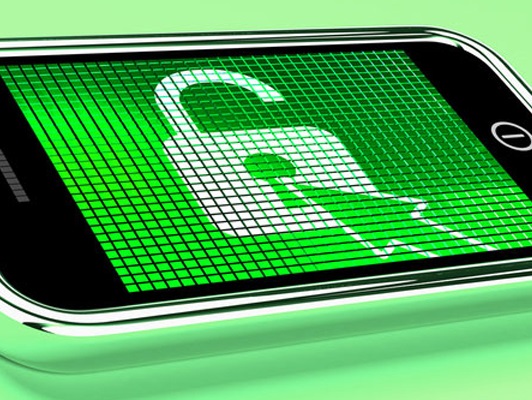Jailbreak, Root or Unlock Your Smartphone - FAQ
This primer provides a breakdown of what it means to jailbreak, root or unlock your phone.

Thanks to We the People, a government website that makes petitioning the White House easy and straightforward, concerned American citizens have gotten responses to everything from gun violence to the feasibility of building a Death Star. One petition in March 2013 implored President Barack Obama to legalize the unlocking of smartphones — a move that would allow consumers to transfer phone service from one wireless provider to another.
The citizens got their way, with some caveats. The White House said it will work with the Library of Congress (which, oddly, has responsibility for this matter) to make sure that users, not phone companies, have control over the devices that the customers purchased.
In practical terms, does this mean that you'll be able to break free of Apple's carefully curated App Store? Not necessarily. That's "jailbreaking," which is different from unlocking. And then there's "rooting," which applies only to Android phones.
MORE: 10 Pros and Cons of Jailbreaking Your iPhone or iPad
Don't ask about tablets; that gets even more perplexing.
If you're confused, you're not alone. This primer provides a breakdown of what you can and can't do with your phone, at least until the White House says otherwise.
Why do the White House and the Library of Congress get to decide how consumers use their gadgets in the first place?
It's a long story, written almost entirely in legalese. In a nutshell, Congress passed legislation in 1998 called the Digital Millennium Copyright Act (DMCA). This law states that tampering with software is a form of copyright infringement, which places implementation of, and exemption from, the DMCA under the purview of the Library of Congress.
Get instant access to breaking news, the hottest reviews, great deals and helpful tips.
Jailbreaking, rooting, unlocking or otherwise tampering with a phone's operating system requires a pretty big system overhaul. In effect, users require special permission from the Library of Congress to modify their phones.
What is jailbreaking?
Jailbreaking is the most narrowly defined procedure of the three, but arguably the most useful — if you have an Apple device, anyway.
An iPhone in its natural state can only run the way Apple intended. Consumers must accept Apple's user interface, cannot examine the phone's file system and can only download applications from Apple's official App Store. Apps available for jailbroken phones, on the other hand, include classic video game emulators, software that removes Apple's size limits for 3G/4G downloads, and themes that radically change the form and function of the iPhone's home screen and menus.
While Apple sometimes limits "mature" or controversial content, content for jailbroken phones faces no such restrictions.
How do I jailbreak an iPhone?
Jailbreaking an iPhone can be a complicated process. Hackers like to stay ahead of the curve, though, and users can now get their hands on free software, such as evasi0n, that automates the procedure. Best of all, the Library of Congress has exempted this process from DMCA prohibitions following the We the People petition.
Can you jailbreak an Android phone?
There's no need. Android users don't have to jailbreak their phones, because Android devices already allow multiple sources for apps: Google, Amazon, Verizon and user-distributed, just to name a few. If Android users want to download and install untested, potentially dangerous third-party apps, that's their prerogative (and, in some cases, risk).
Can you jailbreak other kinds of phones?
Users can also jailbreak other devices, such as Windows Phones and BlackBerrys, but the benefits aren't as obvious. The regular app selection on these platforms is anemic compared to those offered by Apple and Android, and the unofficial app selection is even weaker.
What is rooting?
Some Android users perform a different operation, and "root" their phones. This makes it possible for users to get rid of preinstalled apps, such as Kindle, Blockbuster and Zappos, which wireless companies often stick on new phones. Phone owners can also install the latest versions of the Android OS (without waiting for their carrier to make it available) and even turn their phones into mobile Wi-Fi hotspots without paying an extra fee.
Is rooting phones legal?
Like jailbreaking iPhones, rooting Android phones is also exempted from the DMCA. However, both jailbreaking and rooting may void a phone's warranty. If you want to "unroot" an Android phone or undo a jailbreak on an iPhone before returning the device, it's only a little more difficult than rooting or jailbreaking the phone in the first place.
What is unlocking a phone?
Most phones are tethered to a certain provider: Buy a phone through an AT&T contract, and it won't run on T-Mobile. Unlocking phones allows users to make use of any mobile carrier willing to offer service, provided that the wireless technology is compatible. (AT&T and T-Mobile are compatible because they run on the GSM standard; Verizon and Sprint are compatible because they use the CDMA standard. Other carrier combinations are generally not compatible, but there are exceptions.)
How can I unlock a phone?
You can't, but your carrier can. AT&T, for example, will unlock any phone at the end of a user's contract. "We will unlock your device if that's what you'd like once you've fulfilled the terms of your service agreement," said Mark Siegel, executive director of media relations at AT&T. "If you bring an unlocked device that'll work on our network, we'll provide you a SIM and set up your service."
Is it legal to unlock my phone?
Unlike jailbreaking and rooting, it's not strictly legal for users to unlock their own phones in the United States. While the Library of Congress ruled that buying and selling older unlocked phones is OK, it is not legal to unlock phones purchased after January 2013.
If the president gets his way, however, the Library of Congress may be forced to change its tune. "The White House agrees with the 114,000+ of you who believe that consumers should be able to unlock their cell phones without risking criminal or other penalties," wrote R. David Edelman, a White House senior adviser for Internet, innovation and policy, in a reply to the petition. For now, the Library of Congress seems willing to work with the president.
In other words, hang on to your preferred phone, but don't unlock it just yet.
Follow Marshall Honorof @marshallhonorofand on Google+. Follow us @tomsguide, on Facebook and on Google+.

Marshall Honorof was a senior editor for Tom's Guide, overseeing the site's coverage of gaming hardware and software. He comes from a science writing background, having studied paleomammalogy, biological anthropology, and the history of science and technology. After hours, you can find him practicing taekwondo or doing deep dives on classic sci-fi.
-
expl0itfinder Good information on the basic concepts, it would be nice to see a guide as well.Reply -
clonazepam Where did the term 'jailbreaking' even come from? Who coined it? Why does it sound stupid to me? It sounds funny anytime someone says it, and especially funny when they apply the term to other actions not even remotely associated with Apple / Apple products.Reply
With some of the new custom voice features on Android, people are less inclined to root phones and lose functionality. It all depends on what matters more, I guess. -
WyomingKnott 'Fraid I have to disagree. The cell company "sells" me a $700 phone for $50 under the understanding that I'll use their service for two years. They make up the money with profit on the service.Reply
I think that rules should be fair to cell phone companies too. Or they will lose the motivation to sell phones at 93% off to the 90% (roughly) of us who get a phone to use with our current service provider. The majority of us will lose from that.
How about requiring the companies to unlock a device after the agreed-upon service period is expired, or the penalty for not completing said service period is paid? Then this is no longer a license for some people to steal from the service provider, the net cost of which will be passed along to the rest of us.
Dunno about you, but I'd rather pay $50 and stick with my longtime service provider. -
g-thor I can't help but wonder about this in light of computers. If I buy a computer with Windows installed on it, and then down the road I decide I want to put Linux on it, or some other OS, am I infringing a copyright?Reply
If I buy a phone and complete the contract, so that now the phone is fully mine, and it has one company's version of Android on it and I decide to put Cyanogenmod on it, have I infringed a copyright? How?
Maybe that's a bad example. How about books? I know what copyright infringement in a published work looks like. I take someone else's work (both writer and publisher) and then do up my own version to sell or give away. I profit either from income or good will for the gifts given, and the author and publisher are cut out. How does changing the software and/or firmware on my phone infringe a copyright?
Maybe somebody can come up with an example that would explain it for me, because I don't get the copyright infringement aspect.
@WyomingKnott - really good point, in my opinion. Once the contract is completed then I should have the right to do what I want with the phone. Until then, the "ownership" is sort of shared with the phone company - kind of similar to the house that the bank holds majority financial interest in. But don't forget - the moon is a harsh mistress, and so are the phone companies. -
house70 @clonazepam: you probably already knew this, jailbreaking as a term came to life when iPhones were released, and the reason for that was to illustrate the process of "escaping from the restrictions - jail- imposed by Apple on the owners with regards to apps/functionality/etc , hence the very appropriate term coined.Reply -
JMBieber actually blackberry 10 phones can install and run android apps, and with the newsest update for blackberry's, it can also install the apps from a number of android markets right from the phone.Reply -
NoUsernameGiven I usually wonder how precise or how investigated an article is when I read it. This is one that obviously was NOT very well researched, nor even cited.Reply
You CAN SIM unlock a phone. Carriers will even help you do it if you're traveling abroad, granted you're keeping up with your bills. The vast majority of Android phones can, fairly easily, be unlocked (by rooting and voiding warranties, but still). -
Grandmastersexsay "One petition in March 2013 implored President Barack Obama to legalize the unlocking of smartphones..."Reply
First of all, Congress is responsible for enacting legislation, not the president. I know if you looked at all executive orders the president signs, one might not realize this, but that is how the system is supposed to work.
Secondly, any legislation that forces cell companies to sell unlocked phones is going to drive up prices for the consumer. Keep in mind such a law would benefit less than 1% of cell customers. You don't like having your phone tied to a carrier? Then don't buy one of their subsidized phones. Deal with it. Don't force even more government intrusion into everyone's lives because YOU don't want to pay the full price of a phone. $@& holes.
